On March 7, 2023, (from left to right) Cai Qi, Wang Huning, and Li Qiang at the Chinese Communist Party's National People's Congress. (Greg Baker/AFP via Getty Images)
[People News] On March 26, Dajiyuan published an article by Zhou Xiaohui titled "After the Two Sessions, Xi and Cai Qi Absent from Diplomatic Activities – Very Strange." The article pointed out that in the half-month period following the conclusion of the Chinese Communist Party’s (CCP) Two Sessions on March 11 until March 26, an unusual occurrence took place—both Xi Jinping and Cai Qi were absent from any diplomatic activities. Meanwhile, other Politburo Standing Committee members, including Li Qiang, Zhao Leji, Wang Huning, Ding Xuexiang, and Vice President Han Zheng, all participated in normal foreign affairs engagements.
By comparing Xi’s foreign affairs schedule during the same period in previous years, the article argued that this was highly abnormal. The author speculated that this could be related to rumors of Xi losing power, as well as reports that his close military ally, He Weidong, had been taken in for investigation. Coincidentally or not, just two days after the article was published, on March 28, Xi Jinping suddenly resumed diplomatic activities—meeting with international business representatives and later with Muhammad Yunus, the Chief Advisor of Bangladesh's interim government, who traveled from Hainan to Beijing specifically for the meeting. Cai Qi attended the first meeting.
What Do These Meetings Reveal? Do They Prove Xi Still Holds Power?
First, these meetings suggest that Xi may have already lost control over managing U.S.-China relations. Over the past decade of his rule, Xi, who sought to dominate everything, naturally also aimed to dictate U.S.-China relations. However, due to his misjudgment of the CCP’s actual strength, he abandoned Deng Xiaoping’s "hide and bide" policy, choosing instead to compete with the U.S. for global dominance through aggressive "wolf warrior" diplomacy. Furthermore, he intensified efforts to infiltrate American institutions, corrupt high-level U.S. officials, and steal U.S. high technology, all in hopes of undermining America from within. The CCP’s intentional spread of the virus worldwide, which resulted in the deaths of millions, including many Americans, has fueled widespread anger in the U.S.
The CCP’s malevolence has awakened many Americans, who now recognize the regime as the greatest threat to the U.S. and the world. Under President Trump’s leadership, these Americans have taken steps to counter leftist and CCP influence domestically while increasing political, economic, military, and technological pressure on the CCP. Trump’s policies over the past two months—including officially distinguishing between the "CCP" and "China" in government documents—have sent shockwaves through Beijing.
Trump’s crackdown on the CCP has also made the party’s elite aware of Xi’s diplomatic failures and his stubborn, reckless approach. Given that he has already lost control over the military, it is unsurprising that he would also lose authority over U.S.-China relations. His recent meeting with international business representatives serves as evidence of this shift—especially considering that in the same period in 2024, Xi was meeting with U.S. business and strategic academic representatives instead.
During this meeting, Xi Jinping (Xi Jinping) engaged with over 40 global chairpersons, CEOs of foreign-funded enterprises, and representatives from business associations, including FedEx Corporation President Raj Subramaniam, Daimler AG Chairman Ola Källenius, Sanofi CEO Paul Hudson, HSBC Holdings CEO Noel Quinn, and Hitachi Ltd. Chairman Toshiaki Higashihara. His approach was notably more relaxed, as he first highlighted the so-called 'two miracles' of China's rapid economic growth and long-term social stability. He acknowledged that these successes are not solely attributed to the leadership of the Communist Party of China and the efforts of the people, but also to the support from the international community, including the contributions of foreign-funded enterprises in China, emphasizing that all parties are engaged in a 'mutually beneficial and win-win' relationship.
Furthermore, Xi sought to persuade foreign business leaders on the importance of investing in the Chinese market, stressing that the Third Plenary Session of the 20th Central Committee of the Communist Party of China has laid out a roadmap and timetable for reforming foreign investment and management systems. He reiterated the commitment to multilateralism and globalization, among other principles. While his remarks aimed to encourage continued foreign investment in China, they came across more as a scripted message, lacking personal expression and the confidence typically associated with someone in a position of power, focusing instead on how 'China' is progressing.
In contrast, during last year's meeting with representatives from the American business community and strategic academic circles, Xi's tone was more authoritative. He frequently used 'we' and 'I' in his speech, reflecting the confidence and assertiveness of a leader in control.
Interestingly, this year, Li Qiang has taken over from Xi Jinping and met with U.S. Senator Dianne Feinstein and several American business leaders. Even more notably, Li Qiang's speech included more references to 'we,' expressing a vision for the development of China-U.S. relations and how to improve them, which is reminiscent of Xi's meetings with representatives from the American business and strategic academic communities last year. Does this suggest that Li Qiang is assuming some of Xi's leadership roles?
It is important to note that in a report by Xinhua News Agency, international business representatives stated 'under the leadership of Chairman Xi Jinping...'; last year, this phrase was 'under the outstanding leadership of Chairman Xi Jinping.' What does it signify that this year it is no longer described as 'outstanding'? This raises the question of whether this is a matter of what international business representatives said or whether state media permits such language.
Xi Jinping's retreat in diplomatic posture is also evident in his meeting with Yunus, the chief advisor of Bangladesh's interim government. In contrast to the statements made during Xi's meeting with the now-overthrown former Prime Minister Hasina of Bangladesh in July 2024, this time state media reported that Xi no longer referred to China and Bangladesh as a model of friendly exchanges and mutually beneficial cooperation among 'global South' countries. He also did not mention that 'China is willing to closely cooperate with Bangladesh in international and regional affairs, strengthening coordination and cooperation within multilateral frameworks such as the United Nations.' Instead, he simply stated that he is 'willing to strengthen multilateral coordination and cooperation with Bangladesh, promoting the unity and self-reliance of the global South.'
In contrast to the 'wise leadership' praised by Hasina, state media only noted that Yunus 'highly praised the three major global initiatives and other significant concepts proposed by Xi Jinping.' The implications of praising a concept and lauding an individual as wise are entirely different.
Analyzing the subjects and language of Xi's meetings, it appears that the two foreign affairs events arranged for him do little to dispel external suspicions regarding his loss of power; rather, they seem to reinforce such doubts to some extent.
Meanwhile, Cai Qi, who has been out of the public eye for half a month, was also scheduled to meet with representatives from the international business community, but this was merely a token appearance. Interestingly, on the same day, Cai Qi, in his role as the director of the Capital Planning and Construction Committee, attended the fifth plenary meeting of the 20th Capital Planning and Construction Committee and delivered a speech. While CCTV covered this event, Xinhua News did not feature it on its homepage; instead, it was tucked away in a special report on Cai Qi, while news about other Politburo Standing Committee members, such as Li Qiang, Ding Xuexiang, and Han Zheng, was prominently displayed on the homepage.
What could be the reason for this? They allowed Cai Qi to make an appearance but seem reluctant to promote it widely. Is it possible that Cai Qi is also facing some difficulties? Notably, at the planning committee meeting, Cai Qi refrained from praising Xi as he had done prior to July of last year, only stating, 'under the centralized and unified leadership of the Party Central Committee with Xi Jinping at its core.' This is also quite unusual.
The peculiarities surrounding Xi and Cai Qi, along with the unusual reporting by state media, raise the question of whether their statements and actions are truly beyond their control and dictated by unseen powers behind the scenes. Until the final answer is revealed, these unseen powers may need to maintain a delicate balance to prevent chaos.
(First published by People News)

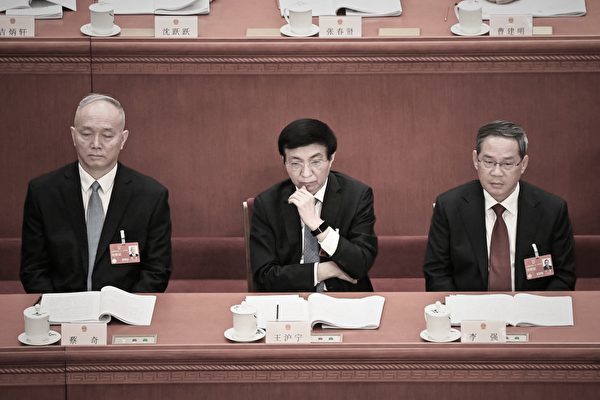
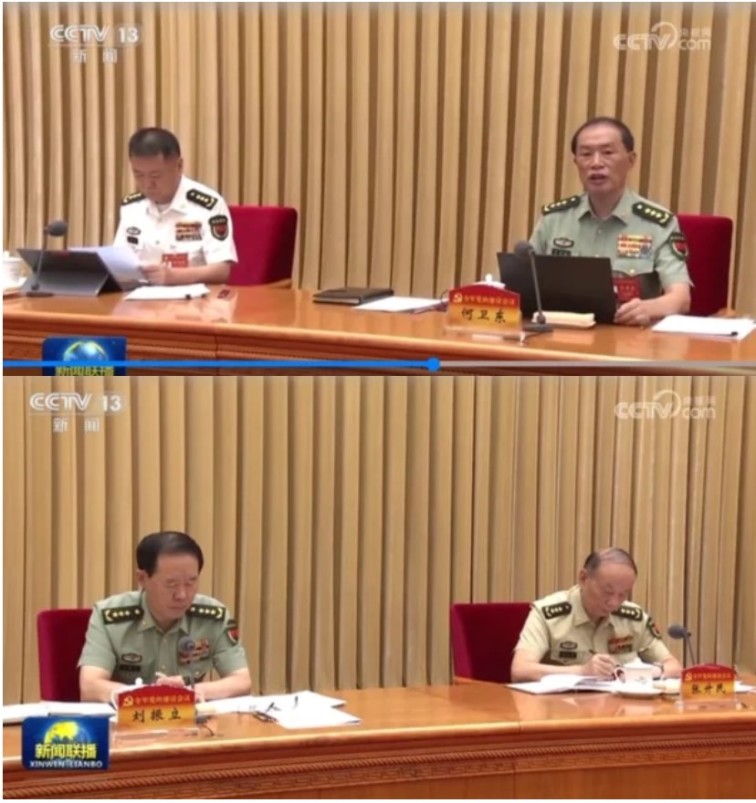
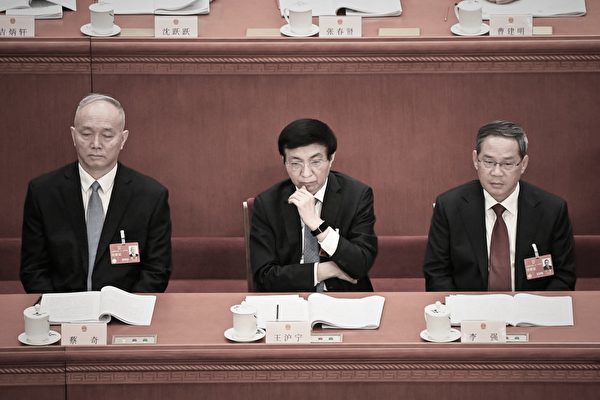
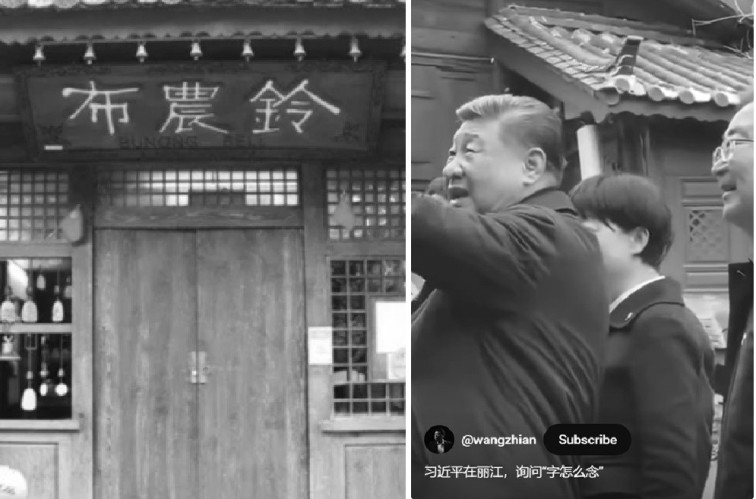




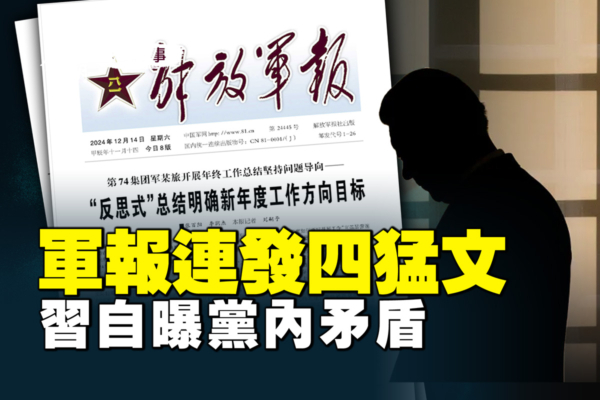

News magazine bootstrap themes!
I like this themes, fast loading and look profesional
Thank you Carlos!
You're welcome!
Please support me with give positive rating!
Yes Sure!